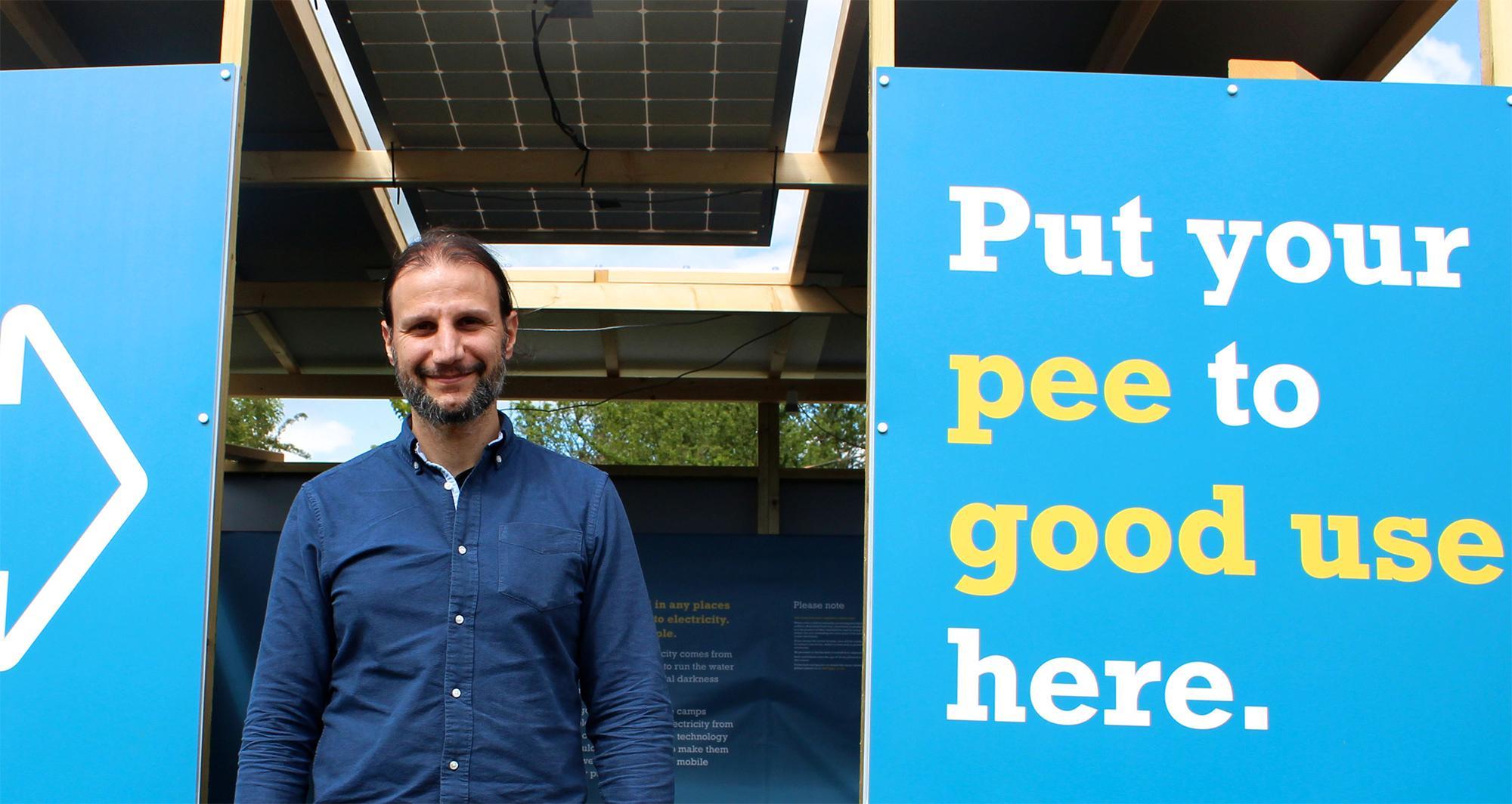The Independent's journalism is supported by our readers. When you purchase through links on our site, we may earn commission.
Pee Power returns for Glastonbury 2016
Why the urinal that generates electricity could be a headline act at this year’s festival

Britain’s biggest celebration of live music seems an unlikely place for a scientific experiment but researchers from the University of the West of England (UWE Bristol), and workers from Oxfam and Dunster House shelter manufacturers, are using this year’s Glastonbury Festival as a testing ground ahead in advance of planned trials in Africa and India later this year that could lead to improved sanitation and lighting in countries where neither is readily available.
A specially adapted urinal that first appeared at Glastonbury last year, following its launch at the UWE Bristol student union in March 2015, the Pee Power unit is now twice as big and capable of accommodating up to 25 people at once.
The toilet will contribute to the facilities needed on site but the real purpose behind taking the unit to Glastonbury is to excite and inform the audience about a technology in its relative infancy that has the potential to change lives.
The unit is powered by urine fed through microbial fuel cells (MFCs) that generate enough electricity to light up the inside of the urinal.
“The festival presents us with the opportunity to trial the technology, along the lines of its robustness and cleaning capability, in terms of the sheer numbers of people and therefore the amount of urine,” says Professor Ioannis Ieropoulos, director of the Bristol BioEnergy Centre, Bristol Robotics Laboratory, at UWE Bristol.
“The urinal at the festival this year is going to be built to the size we plan to use for refugee camps. We have also developed the microbial fuel cell unit so that it is much smaller and yet delivering the pee power with more power.
“Our ethos of reusing free resources – in this case urine, generating energy for free and also cleaning the urine so that it is suitable for agricultural use – resonates with the Glastonbury Festival organisers who have made us feel very welcome. The benefits of a stand-alone system like the version we have designed is that it provides lighting that can be used in any environment and in any conditions with electricity being generated continuously from the waste without having to rely on the grid or other fossil fuel based technology.”
“In most refugee camps around the world, and in poor slum areas, light is needed at night,” explains Andy Bastable, water sanitation manager for Oxfam. “The microbial fuel cells light up patches in the camp and this is important with regards to women’s safety at night. Another bonus of this technology is the ability to charge mobile phones. There is potential for us to develop charging centres that would be particularly beneficial in refugee camps where families get split up.
“The project is in quite early days in terms of the field trials and Oxfam is hoping to work with the Bristol BioEnergy Centre not just on investigating the lighting inside toilets but working towards lighting a six-metre radius around the toilets so we have street lighting based on pee power.”
Dunster House has designed and manufactured a bigger superstructure with two additional privacy panels. This Emergency Pissoire is based around the Dunster House humanitarian range. “As a company that is constantly moving forward and searching for new solutions we are really excited that we can take part in this project,” says director, Chris Murphy. “Our mission is to help resolve as many humanitarian issues as possible and we truly believe that our products can make a difference, especially in developing countries.”
UWE Bristol researchers and student ambassadors will be on hand during the festival to help explain how the Pee Power Unit works. There will be other MFC demonstration units next to the urinal, allowing the public to engage with the technology in an interactive manner.
Pee Power is just one of a series of public engagement, research and volunteering opportunities that UWE Bristol is showcasing at Glastonbury 2016, whose organisers have said that it is vital that festival goers do not pee on the land as it pollutes the river than runs through the site and harms fish and other wildlife.
This content was written and controlled by the University of the West of England
Subscribe to Independent Premium to bookmark this article
Want to bookmark your favourite articles and stories to read or reference later? Start your Independent Premium subscription today.

Join our commenting forum
Join thought-provoking conversations, follow other Independent readers and see their replies